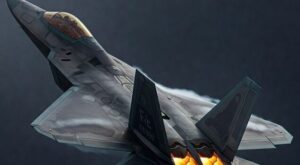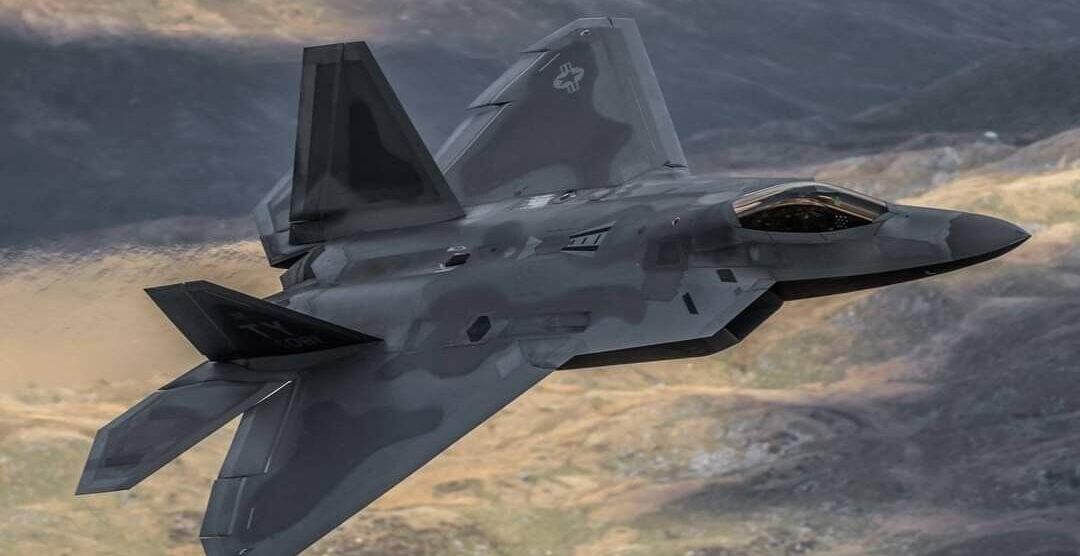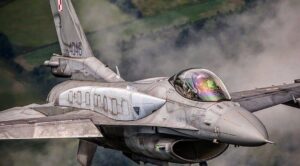History and Development of the F-15 Fighter Aircraft
The first F-15 fighter aircraft flew in July 1972 and the first F-15B flew in July 1973. The first Eagle F-156 was delivered in November 1974.
The primary fighter aircraft built for the US Air Force, the F-15 was developed by McDonnell Dallas (now part of Boeing) and introduced in 1976.
The F-15 Eagle has established itself as one of the world’s most successful and capable fighter aircraft.
The F-15 is renowned for its exceptional power, high speed, and impressive combat record spanning 71 years.
It is a supersonic, all-weather, large-bodied fighter based on the F-15C Eagle.

F-15 fighter aircraft Power and Speed
The F-15 Eagle has two Pratt & Whitney F100 engines. Each engine can produce 23,000 to 29,000 pounds of thrust. Its maximum speed is over Mach 2.5, which is about 1,875 miles per hour. The F-15 can climb at a speed of over 50,000 feet per minute.
Engine: The F-15 is equipped with two Pratt & Whitney F100 afterburning turbofan engines. These engines are known for their high thrust-to-weight ratio. This feature provides fast acceleration and agility.
Maximum Speed: The F-15 can fly at a speed of over Mach 2.5, which is about 1,875 miles per hour.
Climb Rate: This aircraft can climb at an amazing speed of over 50,000 feet per minute. This allows it to reach altitude quickly.
Other notable features: The F-15 has a swept wing design and a robust aluminum fuselage. Its high thrust-to-weight ratio and low wing loading enhance its remarkable agility and maneuverability.
Evolution of the F-15: From F-15C to F-15EX
The F-15EX Eagle II is a major upgrade over the F-15E Strike Eagle, especially in its ground attack capabilities. The F-15EX includes features such as AESA radar and the ability to carry hypersonic missiles, which improve its offensive power and survivability in today’s combat environment.
F-15E Strike Eagle (Ground Attack)
The F-15E Strike Eagle is a long-range, all-weather fighter based on the F-15 Eagle.
It is designed for both air-to-air and air-to-ground missions, with a special focus on ground attack.
Key Features
It has advanced avionics, radar and weapon systems for precision strikes.
F-15EX Eagle II
The F-15EX is a modernized version of the F-15E, incorporating new technologies to address changing threats.
AESA Radar
It uses the AN/APG-82(V)1 AESA radar, which provides improved detection, tracking and electronic warfare capabilities.
Hypersonic Missile Capability
It can carry and deploy hypersonic weapons, giving it a significant offensive edge.
It is equipped with digital fly-by-wire flight controls, an all-glass cockpit and the Eagle Passive/Active Warning and Survivability System (EPAWSS) for improved survivability and situational awareness.
Payload Capacity
It has a higher payload capacity, allowing it to carry more weapons and a variety of armaments.
It has a much longer service life than earlier F-15 models.
In short, the F-15EX strengthens the F-15E’s ground attack base with cutting-edge technology, making it a more flexible and powerful strike platform for modern warfare.
https://usanewsbite.com
F-15 vs Modern Fighters (F-22, Su-35)
The F-22 Raptor Fighter Aircraft is better at stealth, while the F-15 is better in terms of its core strength and payload capacity. The Su-35, with its thrust vectoring, offers better maneuverability than the F-15 and even the F-22 in some cases.
The F-22 Raptor is a fifth-generation stealth fighter designed using radar-absorbent technology, including its shape, radar-absorbent materials, and internal weapons bays. The F-15 does not have these stealth characteristics.
Core Strengths
The F-15 can carry more payload, which means it can carry more weapons and potentially fly longer ranges. The F-22’s Raptor Fighter Aircraft engines are more powerful, giving it a higher thrust-to-weight ratio. This results in better acceleration and maneuverability.
Situational awareness
Both aircraft are equipped with advanced radar systems. The F-22’s radar is more sophisticated, allowing it to detect targets at longer ranges and with greater accuracy.
Aerial combat
In close-in aerial combat, the F-22’s thrust vectoring, combined with its agility and stealth, could provide an advantage. However, the F-15’s raw power and maneuverability still make it a strong contender.
Cost
According to WION, the F-22’s stealth technology makes it significantly more expensive to operate than the F-15.
Famous Wars and Combat Records
Some of the most famous F-15 missions include:
• 1982 Lebanon War (Israel), numerous aerial victories
• Operation Desert Storm (1991), dominance over Iraqi air defenses
• Operation Allied Force (1999), effective in NATO’s Kosovo operations
• Operation Inherent Resolve (2014-present), precision strikes against ISIS
https://usanewsbite.com/web-stories/f-15-fighter-aircraft-power-speed-legacy-in-the-sky/
FAQ:
How fast is the F-15?
The F-15 can reach speeds of up to Mach 2.5 (1,650 mph or 2,655 km/h) at high altitudes.
Has an F-15 ever been shot down in combat?
No. The F-15 has an undefeated record with over 100 aerial victories and zero losses.
How is the F-15 different from the F-22 Raptor?
The F-15 focuses on speed, payload, and versatility. The F-22 is designed for stealth and agility.
Can the F-15 still compete with modern jets?
Yes. With upgrades like the F-15EX Eagle II, it remains highly relevant in today’s aerial combat strategies.
Which countries use the F-15?
The United States, Israel, Japan, Saudi Arabia and Qatar are among the countries that operate the F-15.


